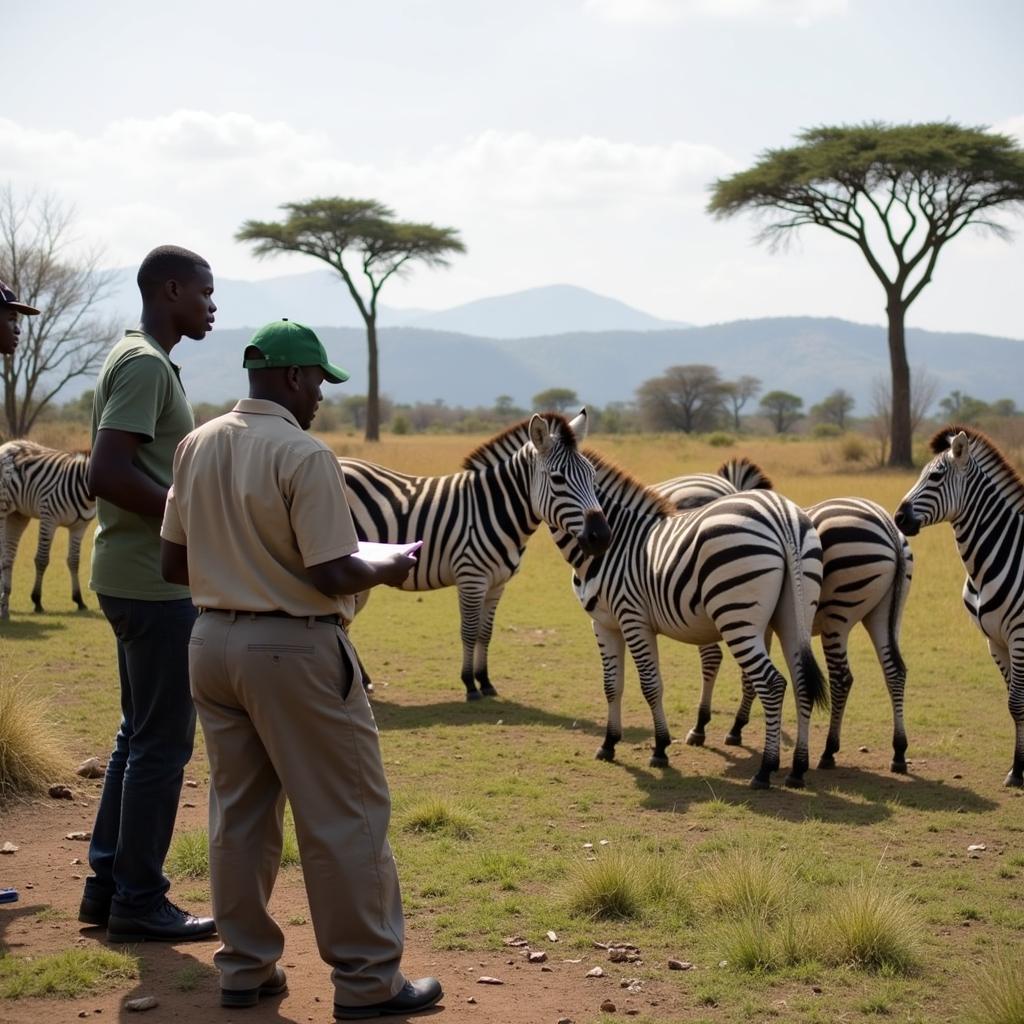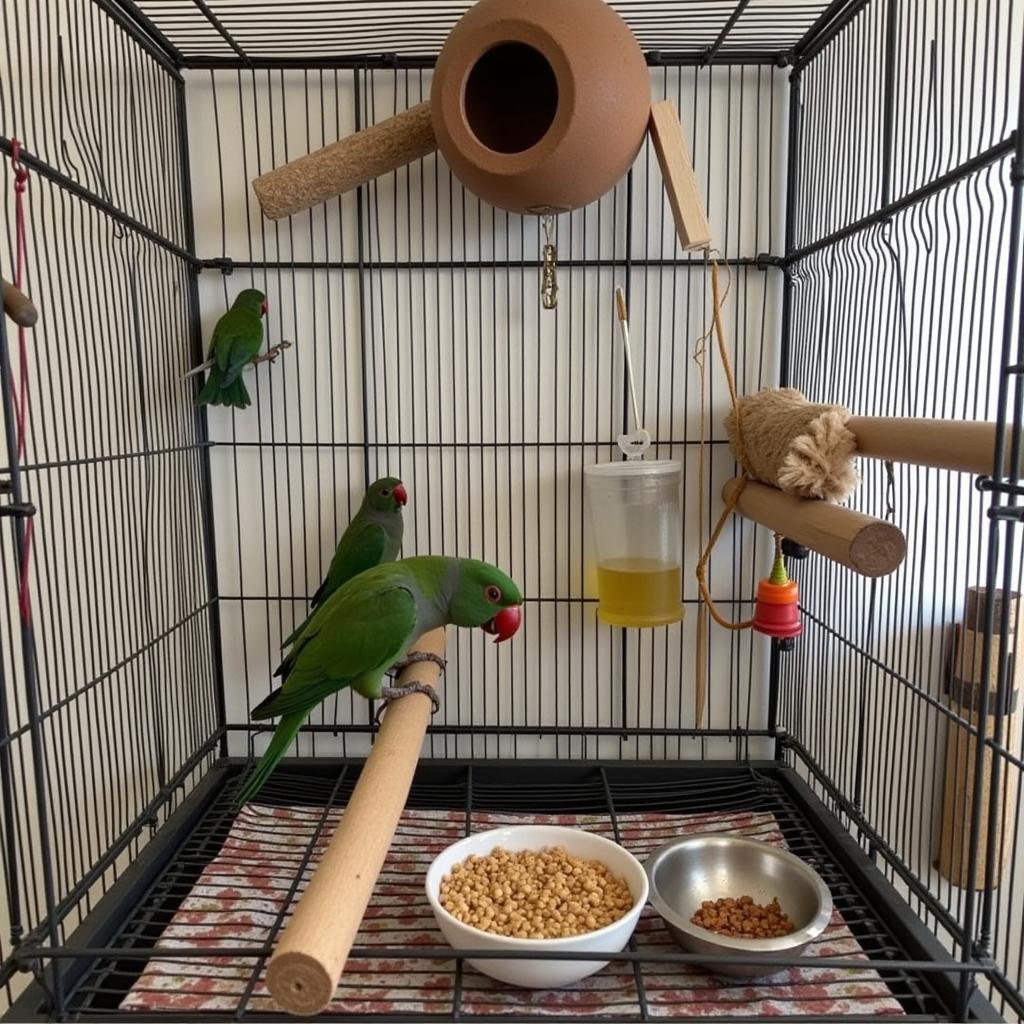Unveiling the World of African Animal Research
Africa, a continent teeming with biodiversity, has captivated the world with its iconic wildlife for centuries. But beyond the captivating safaris and breathtaking documentaries lies a crucial field of study: African Animal Research. This field encompasses a vast array of disciplines, from conservation biology and ecology to genetics and animal behavior, all dedicated to understanding and protecting the continent’s diverse fauna.
The Importance of African Animal Research
African animal research plays a critical role in addressing the unprecedented challenges facing the continent’s wildlife. Habitat loss, climate change, human-wildlife conflict, and poaching are pushing numerous species towards the brink of extinction. By studying animal populations, their behaviors, and the threats they face, researchers can provide crucial data for effective conservation strategies.
For instance, researchers studying the movement patterns of African elephants using GPS tracking are helping to establish wildlife corridors that allow elephants to migrate safely between fragmented habitats. Similarly, scientists investigating the impact of climate change on the breeding success of endangered African wild dogs can inform conservation efforts to protect this vulnerable species.
Key Areas of Focus in African Animal Research
African animal research encompasses a broad spectrum of research areas, with some of the most pressing issues including:
- Conservation Genetics: By analyzing the genetic diversity of animal populations, researchers can identify those at higher risk of extinction and develop tailored conservation strategies. This is particularly crucial for species with small and isolated populations, such as the Ethiopian wolf or the mountain gorilla.
- Disease Ecology: Understanding the transmission dynamics of diseases, both within wildlife populations and between wildlife and humans, is crucial for mitigating the impact of outbreaks. Research in this field has been instrumental in controlling diseases like rabies in African wild dogs and Ebola in gorilla populations.
- Human-Wildlife Conflict: As human populations grow and expand into wildlife habitats, conflicts inevitably arise. Researchers study the drivers of these conflicts, such as competition for resources or livestock depredation, to develop solutions that benefit both people and wildlife. This can involve strategies like community-based conservation programs or innovative approaches to reduce crop-raiding by elephants.
The Future of African Animal Research
The field of African animal research is constantly evolving, driven by technological advancements and a growing awareness of the interconnectedness between human and animal health.
- Emerging Technologies: Drones equipped with high-resolution cameras are revolutionizing wildlife monitoring, allowing researchers to track animal movements, estimate population sizes, and even detect poaching activities in real-time. Similarly, advancements in genetic analysis are providing unprecedented insights into the evolutionary history and adaptive potential of African wildlife.
- Community-Based Conservation: Recognizing that local communities are essential stakeholders in conservation efforts, researchers are increasingly partnering with them to conduct research, implement conservation programs, and foster a sense of shared ownership over wildlife resources. This approach is proving to be particularly effective in areas where traditional conservation efforts have faced challenges.
 Community Members Participating in Wildlife Monitoring
Community Members Participating in Wildlife Monitoring
Conclusion
African animal research is not merely an academic pursuit; it is a critical endeavor that underpins the survival of the continent’s extraordinary biodiversity. As Africa faces escalating environmental challenges, the insights gained from this research will become increasingly vital in guiding conservation efforts and ensuring a future where both wildlife and people can thrive. By supporting and engaging with the work of African animal researchers, we can all contribute to safeguarding Africa’s natural heritage for generations to come.
Frequently Asked Questions about African Animal Research
-
What are some of the biggest threats to African wildlife? Habitat loss, climate change, poaching, and human-wildlife conflict are among the most significant threats.
-
How can I get involved in African animal research? Numerous organizations offer volunteer opportunities, internships, and citizen science projects.
-
Why is African animal research important for humans? Understanding and conserving wildlife contributes to ecosystem health, which directly impacts human well-being through clean air and water, disease regulation, and food security.
-
What are some recent breakthroughs in African animal research? Advancements in genetic analysis, drone technology for wildlife monitoring, and the development of innovative solutions for human-wildlife conflict are some recent highlights.
-
How does African animal research contribute to local communities? By partnering with local communities, research projects can create employment opportunities, promote sustainable livelihoods, and empower communities to become stewards of their own natural resources.
Need more information on African animal research or related topics? Explore our other articles on African cattle sleeping sickness and the African Eurasian Migratory Waterbird Agreement.
Contact us today for any inquiries or assistance. Call us at +255768904061, email kaka.mag@gmail.com, or visit us at Mbarali DC Mawindi, Kangaga, Tanzania. Our dedicated team is available 24/7 to assist you.



